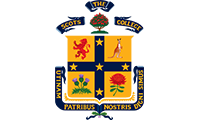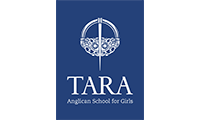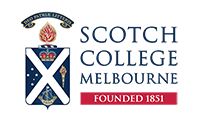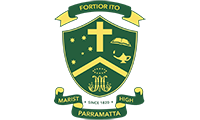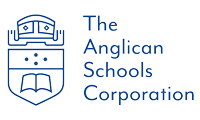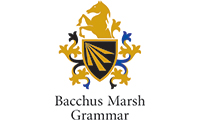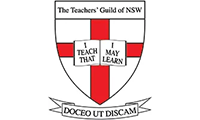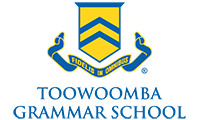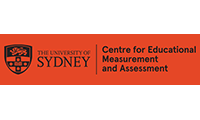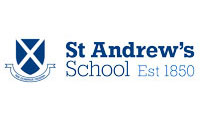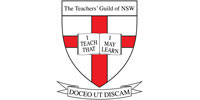
Shaping the future
Discover innovative approaches and strategies for cultivating character in today’s youth.
2025 speakers

Prof Andrew Peterson
Jubilee Centre for Character and Virtues, University of Birmingham UK

Dr Katy Granville-Chapman
Associate Fellow, The Oxford Character Project, UK
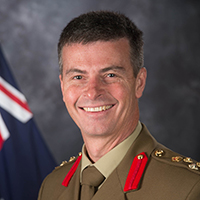
BRIG Craig Shortt
DSC, AM, CSC, DSM, Director General Military Professional Mastery, Australian Defence Force

Prof James Arthur
Jubilee Centre for Character and Virtues, University of Birmingham UK; Human Flourishing Program, Harvard University USA

Natalie Baines
Head of Professional Learning, St Ignatius’ College Riverview

Peter Berkley
Founder and Executive Director, Yadha Muru
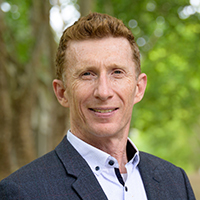
Matt Bower
Professor of Learning Technologies, Macquarie University

David Brown
Dean of Students,
Scotch College Melbourne
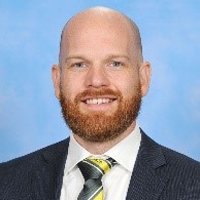
Joshua Bryers
Acting Curriculum Coordinator, Parramatta Marist High School
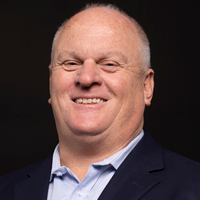
Matthew Cameron
Chief Executive – Rugby League, Penrith Panthers
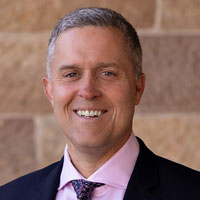
Derek Champion
Deputy Head, Pastoral Care, SHORE

Dr Hugh Chilton
Head of ScotsX, The Scots College
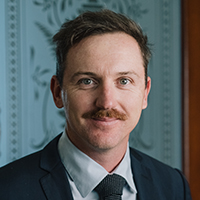
Greg Clarence
Director of Cricket and Boarding Housemaster, The Scots College
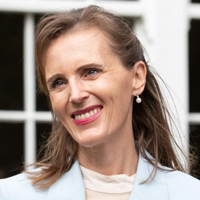
Rebecca Cody
Principal,
Geelong Grammar School
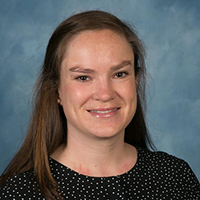
Penny Coleman
ESS Teacher,
The King’s School

Kinda Constantine
Language Teacher and EdTech Integrator, The King’s School

Phil Cummins
Hooke Family Professor of Practice in Educational Leadership, University of Sydney

Lucy Dalleywater
Director of Activities,
Frensham Schools
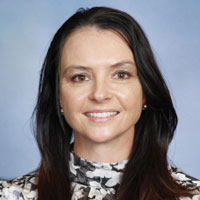
Fiona Devlin
Deputy Principal and Leader of Character Education, Ivanhoe Grammar School

Dr Dean Dudley
Scientific Chair, Australian Character Education Summit

Greg Elliott
Executive General Manager Quality and Performance, Catholic Schools Parramatta
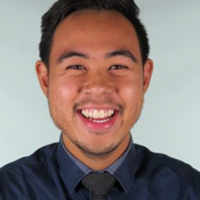
Ryan Epondulan
Parramatta Marist High School
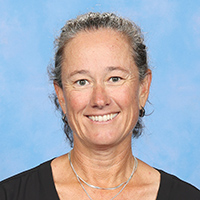
Jess Galbraith
Head of House and Class Teacher, Toowoomba Grammar School
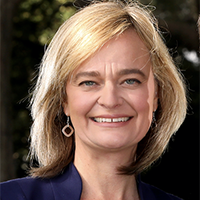
Dr Jen George
Community Building Expert – Academic, Board Director, Consultant

Peter Gibson
Head of Character Education, Barker College

Amy Gill
Deputy Principal Impact and Innovation, Youth off the Streets

Kate Hadwen
Principal,
Pymble Ladies’ College
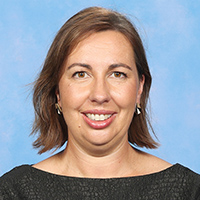
Amanda Hall
Deputy Head of Junior School-Students, Toowoomba Grammar School
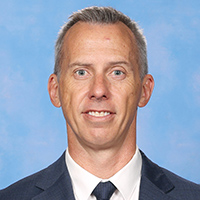
Michael Hall
Head of Pastoral Care, Toowoomba Grammar School
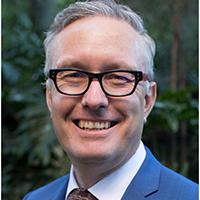
David Hastie
Senior Research Fellow, The King’s School Institute
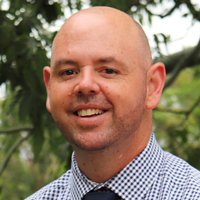
Gavin Hays
Principal, Parramatta Marist High School
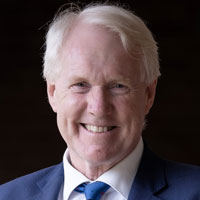
Phillip Heath AM
Head,
Barker College
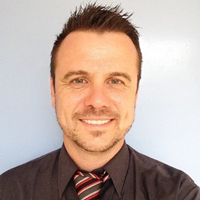
Adam Hendry
Assistant Principal Learning, Parramatta Marist High School
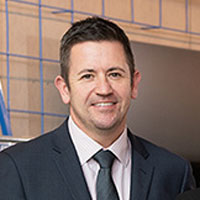
David Hodges
Committee member, Deputy Principal; Head of School R-6, St Andrew’s School, SA
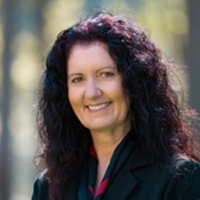
Leanne Holt
Deputy Vice Chancellor Indigenous, UNSW
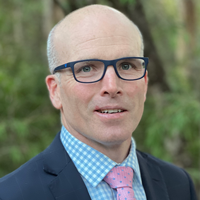
David Idstein
Director Character Development and Leadership, The King’s School
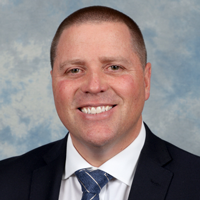
Michael Ilott
Director of Senior School,
Xavier College

Fiona Isaacs
Chaplain, Director of Christian Faith and Values, Tara Anglican School for Girls
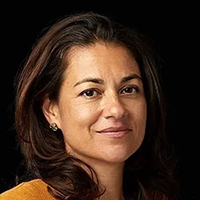
Cherie Johnson
Director, Yadhu Muru

Suzanne Kerr
Director of Wellbeing, Queenwood
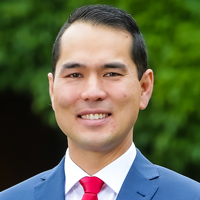
Adam Larby
Head of School,
Tudor House
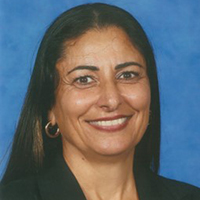
Marie-Anne Maakrun
Leader of Character Education, Marist Catholic College Penshurst
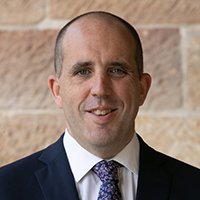
Andrew Mansfield
Deputy Head Operations,
SHORE
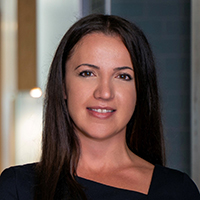
Sonja Maric
School of Education, Macquarie University
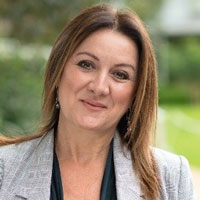
Sia Mastro
Director of Student Wellbeing, Brigidine College St Ives
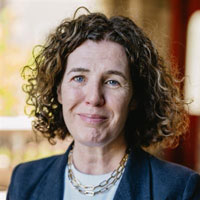
Michelle McCarty
Director of Mission and Student Leadership, Loreto Mandeville Hall Toorak.
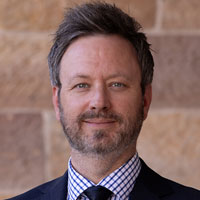
Stuart McCormack
Head of Students, SHORE

Aaron McDonald
Principal,
Youth off the Streets
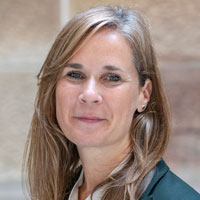
Julie McGonigle
Head, St Andrew’s Cathedral School
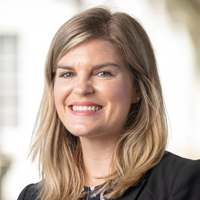
Caitlin Munday
Head of People, Research and Professional Growth, Scotch College Melbourne
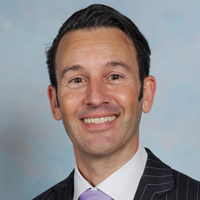
Robin Nagy
School of Education,
UNSW

Angela O’Dwyer
Principal, Loreto Mandeville Hall Toorak
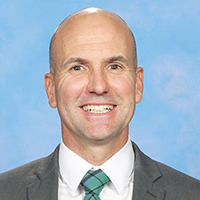
Mark Oliphant
Head of Senior School, Toowoomba Grammar School

Steven Owen
Deputy Principal – Head of Senior School, Oran Park Anglican College
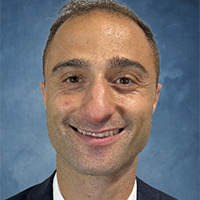
Nick Papastamatis
Acting Head of Sport, The King’s School Preparatory School

Andrew Perks
Deputy Principal, Bacchus Marsh Grammar School

Amanda Pfeffer
Head of Digital Learning, SHORE
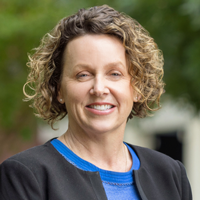
Adele Ramsay
Principal,
Tara Anglican School for Girls

Astrid Sampson
Director of Service Learning, The King’s School
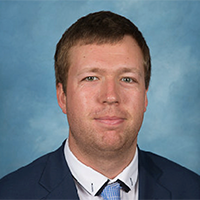
William Sandwell
Housemaster and Teacher, The King’s School Preparatory School

Lia Sharma
Head of Professional Growth, Roseville College
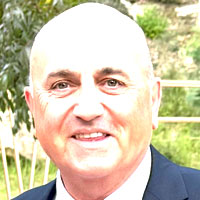
Paul Sheppard
PDHPE and Sports Coaching Teacher, Trinity Catholic College, Auburn
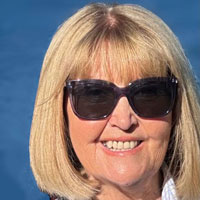
Christine Taylor
Principal,
St Ives North Public School
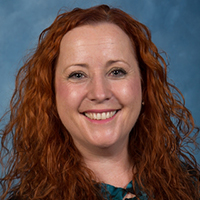
Melanie Taylor
Director,
The King’s School Institute
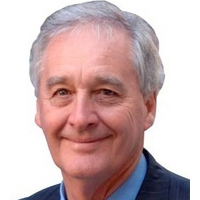
Jim Tognolini
Centre for Educational Measurement and Assessment (CEMA), The University of Sydney
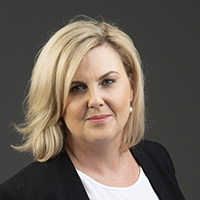
Kathryn Tully
Executive Director, Australian Curriculum Assessment and Reporting Authority
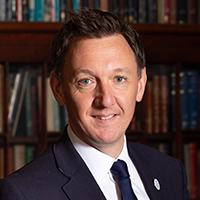
Dr Daniel Tyler
Principal, St Andrew’s College, The University of Sydney
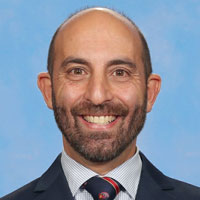
David Vassallo
Deputy Headmaster/ Head of Pastoral Care and Service Learning, Redfield College
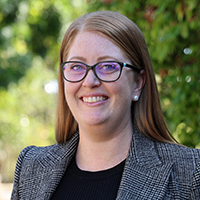
Sarah Warby
Founder, Wonder@Work

Nigel Zimmermann
Director Catholic Mission and Identity, Melbourne Archdiocese Catholic Schools
Session Sketchnotes
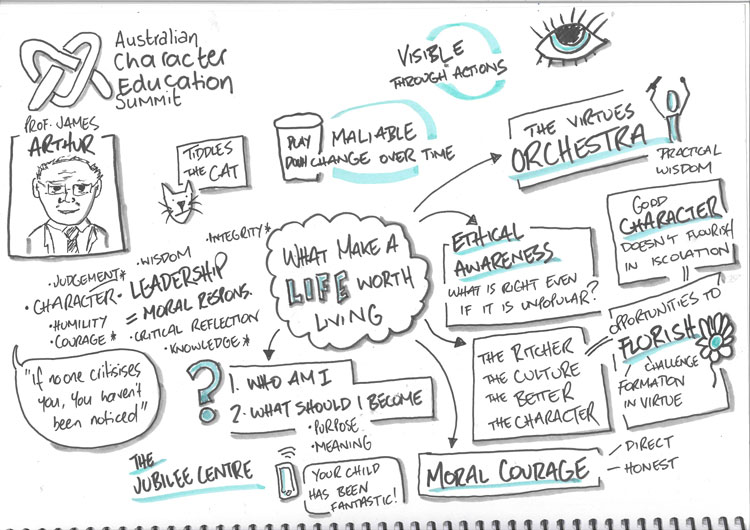
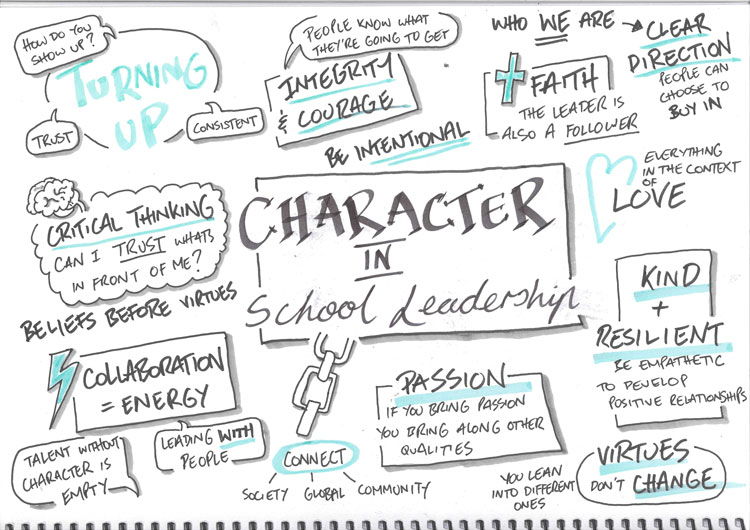
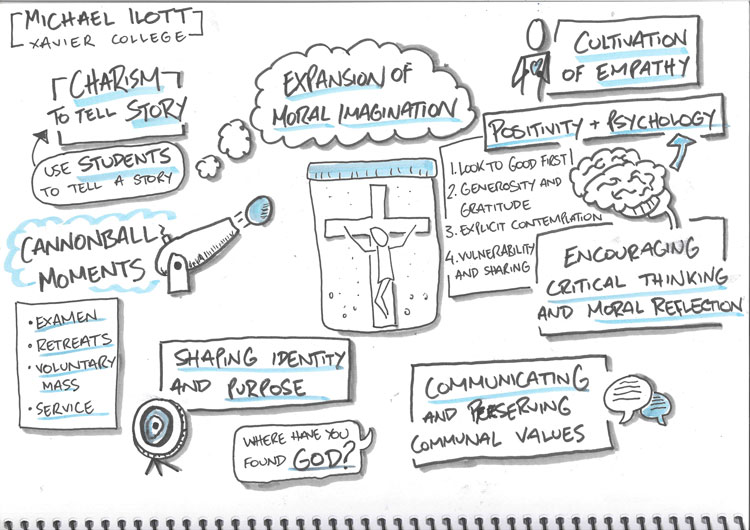
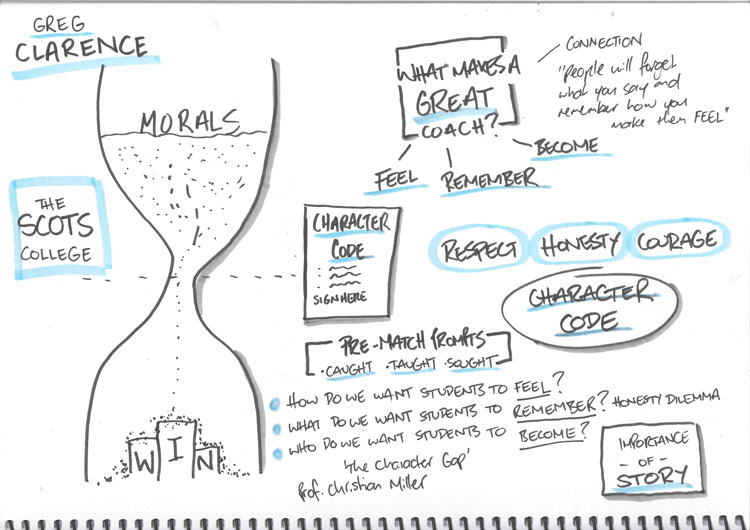
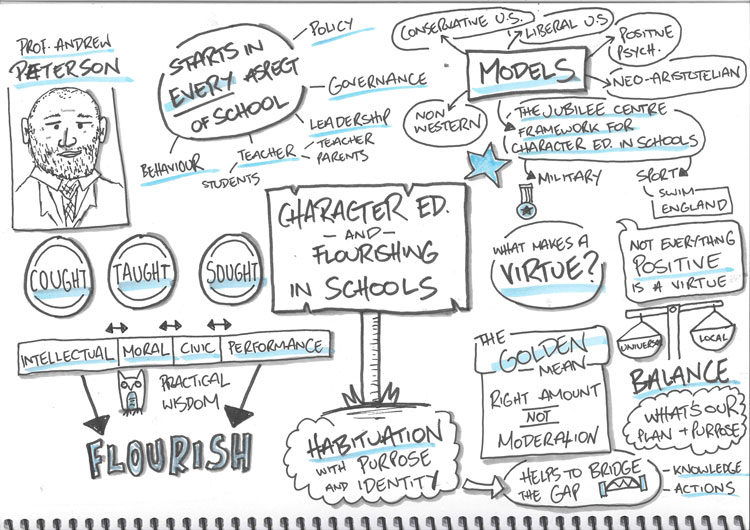
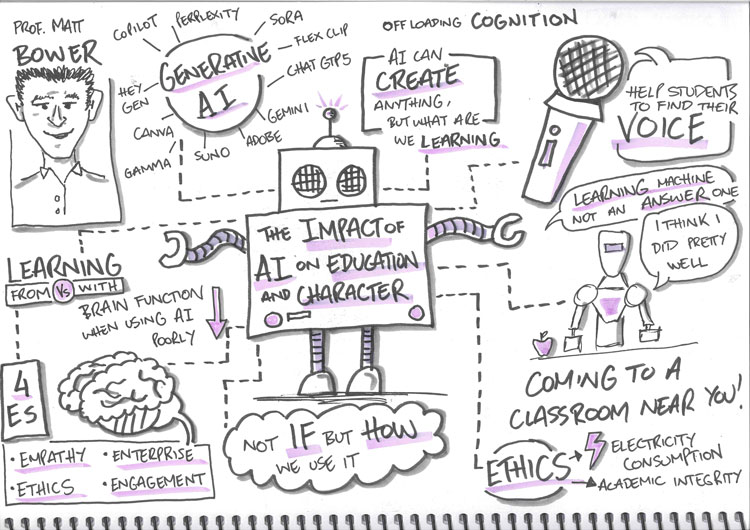
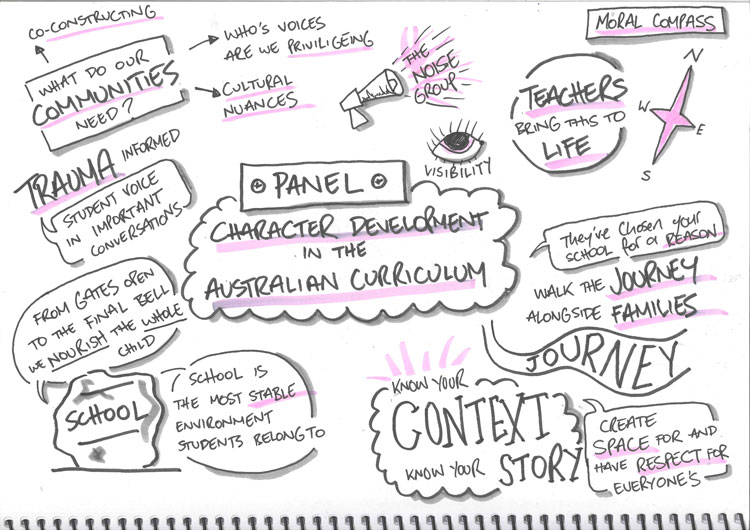
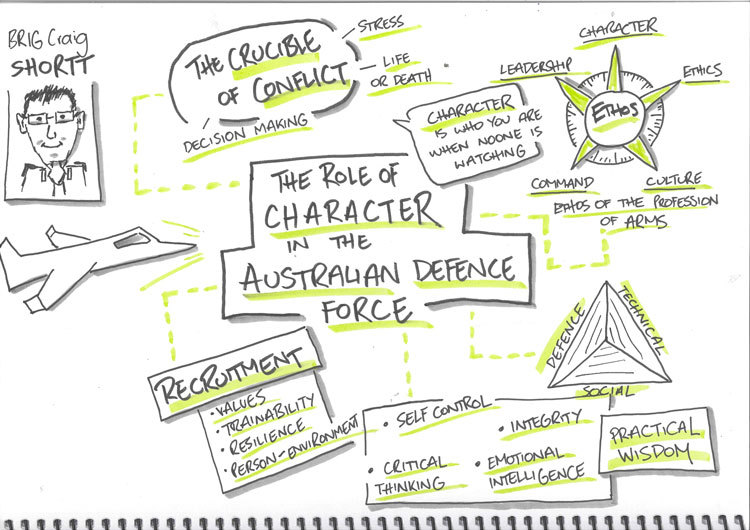
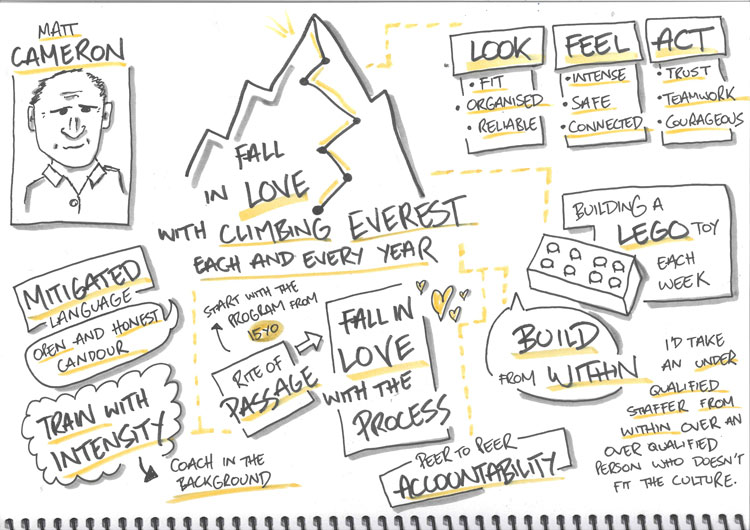
A selection of Sketchnotes from the 2025 Australian Character Education Summit.
by Matthew Handley, Xavier College, Melbourne
Speaker Interviews
Agenda
Day One: Monday 13th October 2025
8:00 Registration & Morning Coffee
8:50 Welcome To Country
Charlotte Chester, Head of Visual Arts, The King’s School
9:00 Opening and Welcome
Mr Ken Chapman, Chairman, The Council of The King’s School
9:10 Opening remarks from the Chair
David Brown, ACES Alliance Secretary and Dean of Students, Scotch College Melbourne
The Role of Character in Education
9:20 International Keynote: To Fulfil Our Human Promise – The Aristotelian Picture of Character Education
- The intellectual and civic aspects of character education
- The formative effect schools have on those who inhabit them
- How practical wisdom is the fundamental character virtue in schools
- The quality of knowing what to want and what not to want when the demands of two virtues collide
- Overcoming the ever-increasing anxiety in education aligned to student success
Professor James Arthur, Jubilee Centre for Character and Virtues, University of Birmingham UK; Human Flourishing Program, Harvard University USA
10:00 Panel Discussion: What role does character play in school leadership?
- What are the character traits needed to be successful school leaders?
- How have these attributes changed over your career?
- What are the keys values that you look for in your leadership teams?
- How important is the role of the Principal in setting a values-based education?
Dr Julie McGonigle, Head, St Andrew’s Cathedral School
Prof Leanne Holt, Deputy Vice Chancellor Indigenous, UNSW
Phillip Heath AM, Head, Barker College
Christine Taylor, Principal, St Ives North Public School
Moderated by Andrew Mansfield, Deputy Head Operations, SHORE
Successfully Implementing Character Education
10:40 Case study: Establishing a character education practice
- Key factors influencing the decision to appoint a Leader of Character Education. What problems were we trying to solve?
- Key challenges in establishing the practice. How supportive and responsive were management, teachers, parents and students?
- Things we have learnt in setting up the practice. What would we do differently?
- Is it working? Analysing the data of the story so far
- What will the program look like in 5, 10 years’ time?
Marie-Anne Maakrun, Leader of Character Education, Marist Catholic College Penshurst
11:00 Case study: Implementing a values-based approach to shaping character education
- Articulating character virtues to enhance and retain Frensham Schools’ culture
- Maintaining the language of character to develop the moral practice of doing what is good and right
- Seamlessly integrating an explicit learning course into the P-12 experience
- How character education develops a sense of belonging and impacts wellbeing
Lucy Dalleywater, Director of Activities, Frensham Schools
11:20 Networking Break & Morning tea
11:50 Breakout Session One – Your choice from the following sessions:
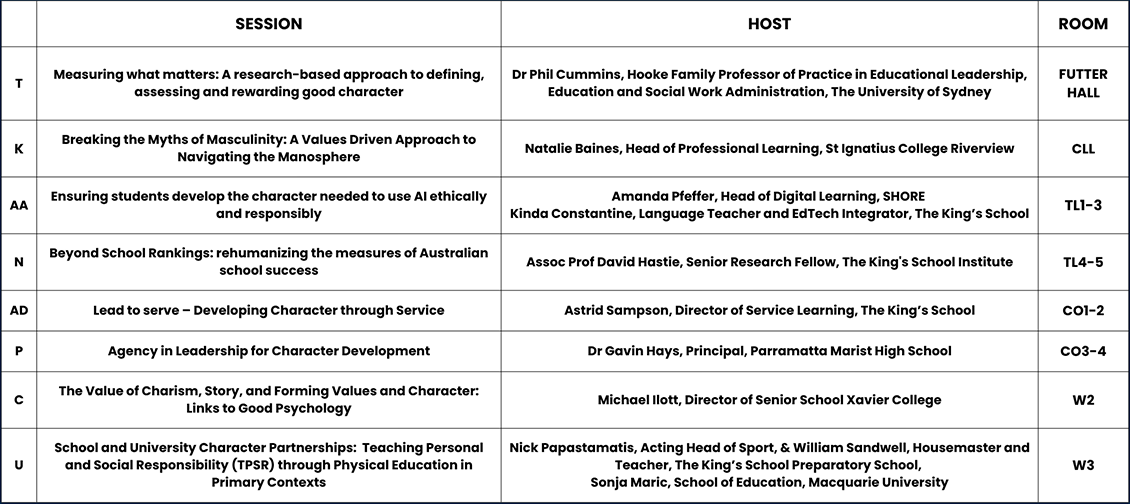
12:30 Lunch
1:30 Breakout Session Two – Your choice from the following sessions:
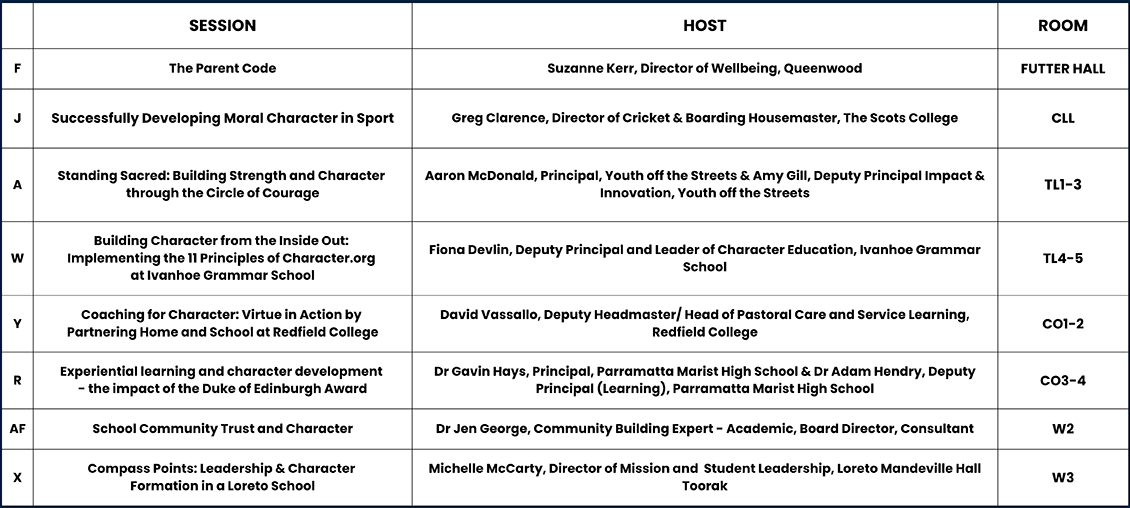
Making Character Education work
2:10 Effectively measuring character in schools
- Why should we be trying to measure character?
- How to measure character development
- Steps in developing a measurement rubric
- How to determine if classroom and extra curricula activities have had an impact on character
Prof Jim Tognolini, Centre for Educational Measurement and Assessment (CEMA), The University of Sydney
David Idstein, Director Character Development and Leadership, The King’s School
3:00 Panel Discussion: Is character education working? Where is the evidence?
- The well-rounded child. A baseless claim or backed by evidence?
- What do we think is working in character education?
- What should character education look like in 10 years’ time?
- Challenges measuring and recording growth and the evolution of character education
Aaron McDonald, Principal, Youth off the Streets
Adam Larby, Head of School, Tudor House
Sia Mastro, Director of Student Wellbeing, Brigidine College St Ives
Sarah Warby, Founder, Wonder@Work
Moderated by Dr Dean Dudley, Scientific Chair, Australian Character Education Summit
3:30 Afternoon tea
4:00 Panel Discussion: Flourishing and Character – what’s the connection?
- Is there, and should there be, a difference in the way character education is delivered for girls?
- How do girls best respond to character and flourishing education?
- Can boys flourish?
- How do co-ed schools differentiate character and flourishing education?
Dr Greg Elliott, Executive General Manager Quality and Performance, Catholic Schools Parramatta
Dr Kate Hadwen, Principal, Pymble Ladies’ College
Angela O’Dwyer, Principal, Loreto Mandeville Hall Toorak
Andrew Perks, Deputy Principal¸ Bacchus Marsh Grammar School
Moderated by Dr Hugh Chilton, Head of ScotsX, The Scots College
4:30 International Address: Putting character at the heart of responsible leadership
- Inspiring a new generation of leaders to develop the moral and intellectual qualities to think with clarity, embrace diversity, navigate ambiguity, and persevere in the face of complex challenges
- The character qualities most important for responsible leadership
- Key findings from the pioneering work of the Oxford Character Project
Dr Katy Granville-Chapman, Associate Fellow, The Oxford Character Project, UK
5:00 Closing remarks and Networking Drinks
6:00 Official Summit Dinner
Day Two: Tuesday 14th October 2025
8:30 Registration & Morning Coffee
9:10 Opening remarks from the Chair
Fiona Devlin, ACES Alliance Committee Member and Deputy Principal and Leader of Character Education, Ivanhoe Grammar School
9:20 International Keynote: Character Education and Flourishing in schools: Key Underpinnings and Practices
- The formative effect schools have on those who inhabit them
- Introducing some of the core philosophical foundations of character education and virtue development
- The building blocks of character – the caught, taught, sought’ approach
- Understanding the components of virtue
- How the framework can be and has been implemented within schools
- The importance of staff as character educators, role models and core pedagogies of character education
Professor Andrew Peterson, Jubilee Centre for Character and Virtues, University of Birmingham UK
10:00 Keynote Address: How Artificial General Intelligence will impact the education experience and the implications this will have on character development
- The impact AI will have in education in and out of the classroom
- How can AI be used to enhance character education?
- Moving beyond the 4Cs to the 4Es – ethics, enterprise, empathy, engagement
- How will the role of educators evolve?
Prof Matt Bower, Professor of Learning Technologies, Macquarie University
10:40 Panel Discussion: To what extent should character development form part of the Australian curriculum?
- Developing personal and social capability
- Understanding ethical concepts and issues
- Reasoning in decision-making
- Exploring values, rights and responsibilities
Kathryn Tully, Executive Director, Australian Curriculum Assessment and Reporting Authority
Nigel Zimmermann, Director Catholic Mission and Identity, Melbourne Archdiocese Catholic Schools
Adele Ramsay, Principal, Tara Anglican School for Girls
Amy Gill, Deputy Principal Impact and Innovation, Youth off the Streets
Moderated by Dr Adam Hendry, Deputy Principal (Learning), Parramatta Marist High School
11:10 Networking Break & Morning tea
11:40 Breakout Session Three – Your choice from the following sessions:
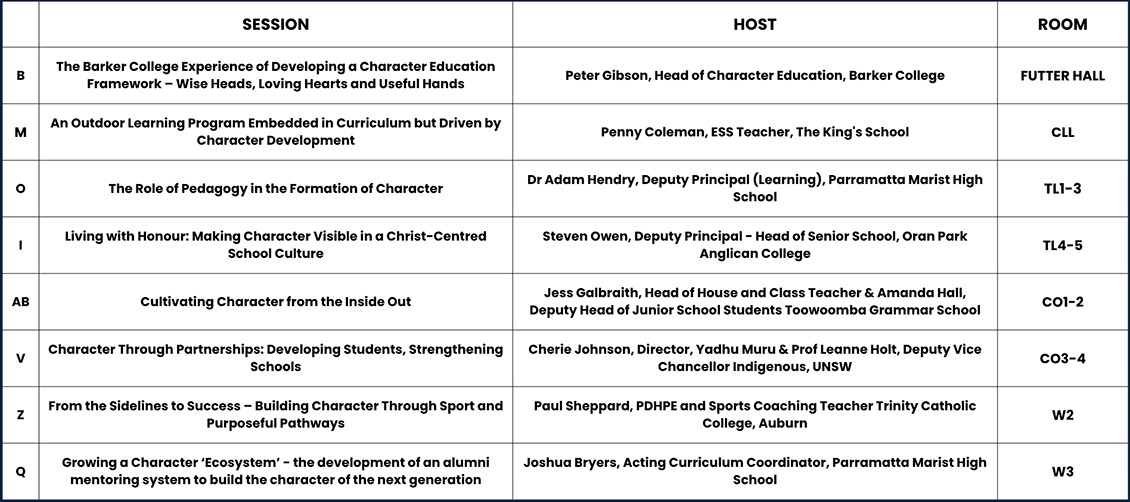
12:20 Breakout Session Four – Your choice from the following sessions:
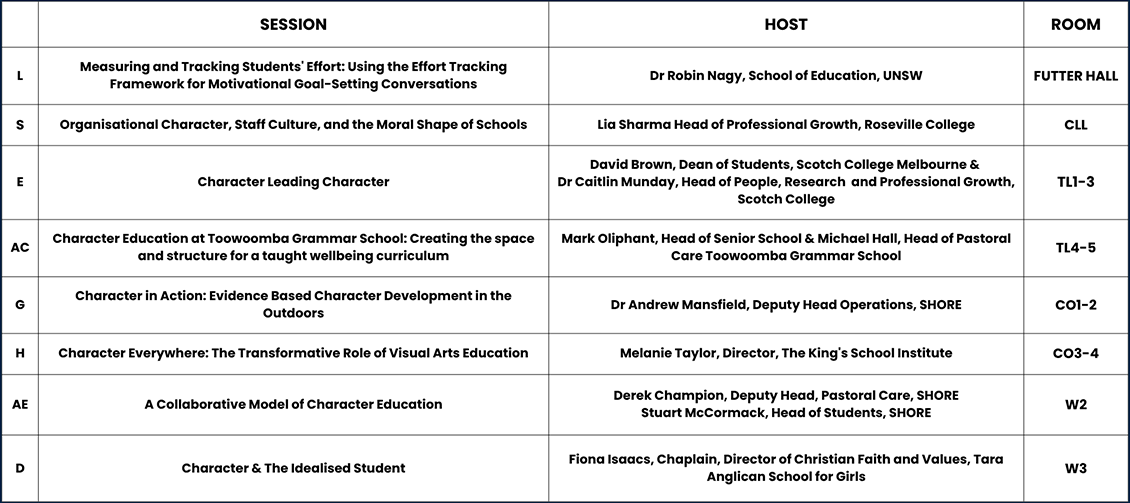
1:00 Lunch
Character in the World and The Future of Work
2:00 The significance of character in the Australian Defence Force
- The role of character in Australian Defence Force Recruitment
- How character underpins the key values and behaviours of Defence
- How character enables effective decision-making in high pressure environments
BRIG Craig Shortt, DSC, AM, CSC, DSM, Director General Military Professional Mastery, Australian Defence Force
2:30 The significance of character and culture in creating long-term success
- Building a values-driven organization: How the Penrith Panthers established clear team values and ensured they were embraced at every level of the organization
- Overcoming adversity through character development: Real examples of how character strength helped the Panthers navigate challenges and setbacks on their championship journey
- Creating a culture of accountability: Specific strategies used to develop player ownership and mutual responsibility within the team environment
- Measuring the intangibles: How the Panthers leadership team identifies, develops, and evaluates character traits and cultural fit beyond physical talent and statistics
Matthew Cameron, Chief Executive Officer- Rugby League, The Penrith Panthers
3:00 Panel Discussion: The significance of character in establishing trust and its contribution towards social cohesion – in families, communities, workplaces and nations
- In a world where AI will dominate the future workforce how will character emerge as a key attribute to build trust and community?
- What are the character traits that enable and build trust which is essential for the cohesion of families, communities and nations?
- What are the character traits future employers will look for? How do we foster these in graduates and school-leavers?
- To what extent does character play in recruitment today? Do you expect this to evolve?
- What plans and programs do your organisations have in place to develop character in employees?
Matthew Cameron, Chief Executive Officer- Rugby League, The Penrith Panthers
Dr Daniel Tyler, Principal, St Andrew’s College, The University of Sydney
BRIG Craig Shortt, DSC, AM, CSC, DSM, Director General Military Professional Mastery, Australian Defence Force
Rebecca Cody, Principal, Geelong Grammar School
Moderated by Dr Jen George, Community Building Expert – Academic, Board Director, Consultant
3:30 Closing remarks from the Chair
3:40 End of the 2025 Australian Character Education Summit
Breakout Sessions
Delegates will have the opportunity to attend 4 breakout sessions from the following list:
A- Standing Sacred: Building Strength and Character through the Circle of Courage
This workshop explores how the Circle of Courage framework, as embraced by The Youth Off The Streets Model of Education, offers a culturally grounded, strength-based approach to character development in at-risk youth. Rooted in Indigenous epistemologies and supported by contemporary youth development theory, the Circle of Courage identifies four universal growth needs—Belonging, Mastery, Independence, and Generosity—as essential to the physical, spiritual, social, and cognitive well-being of all young people.
By explicitly teaching these values, educators can create learning environments that honour young people as sacred—capable of growth, deserving of dignity, and recognised as active participants in their own development. Through the lens of conscious pedagogy, this work becomes intentional: designing experiences, language, rituals, and routines that awaken character. In this way, the classroom becomes a relational, restorative, and responsive space for healing and growth.
As Father Chris Riley affirms, “This is the most powerful framework that I worked within.” This workshop demonstrates how the Circle of Courage can be a transformative tool for educators committed to nurturing strength, dignity, and belonging in every young person.
Aaron McDonald, Principal, Youth off the Streets
Amy Gill, Deputy Principal Impact and Innovation, Youth off the Streets
B – The Barker College Experience of Developing a Character Education Framework – Wise Heads, Loving Hearts and Useful Hands
This workshop explores Barker College’s journey in developing a whole-school character education framework, shaped by the guiding principles of “Wise Heads, Loving Hearts and Useful Hands.” The framework seeks to cultivate intellectual discernment and curiosity (Wise Heads), foster compassion and moral integrity (Loving Hearts), and encourage purposeful action and service (Useful Hands). The workshop will explore the philosophical and pedagogical foundations underpinning the model, outline the collaborative design and ongoing implementation process, and share strategies for embedding the framework. Practical insights and examples will be provided to support educators in shaping similar approaches within their own school communities.
Peter Gibson, Head of Character Education, Barker College
C – The Value of Charism, Story, and Forming Values and Character: Links to Good Psychology
Charism, story, and the formation of values are deeply interwoven elements of personal development, identity, and psychological well-being. Charism, underpins the history and nature of a variety of schools, especially those in the Catholic Faith tradition. School’s charism allow for stories to be deeply used to underpin the value proposition of vocational institutions and moreover the character education of students. Charism and story play a key role in how individuals connect with others and place and can shape the authentic expression to foster engagement.
Charism is schools assist educators to better assist young people make meaning out of experience, cope with challenges, and find direction, forming values for life. When people frame their lives with coherent, positive narratives, they are more likely to show psychological resilience, purpose, and emotional stability. In this sense school’s have an opportunity to link charism to story, spirituality and good psychology. Given the formation of values is closely tied to both charism and story, this session uses the example of the Jesuit lens and the story of St Ignatius to demonstrate these links to values, character and good psychology.
Michael Ilott, Director of Senior School, Xavier College
D- Character & The Idealised Student
We communicate the kind of people we want our students to be and become in lots of different ways, but a powerful (and often overlooked one) is the “idealised student” in our schools. This session will explore the different means by which schools communicate their idealised students, implicitly and explicitly, and importantly the implications that has for character education.
Fiona Isaacs, Chaplain, Director of Christian Faith and Values, Tara Anglican School for Girls
E – Character Leading Character
In this workshop we will explore what it means to be a ‘virtuous leader’ and why this matters in schools, particularly those committed to character formation. We will unpack the shape and impact of such leadership, as well as the differing models of Authentic Leadership, Transformational Leadership and Servant Leadership. We will also share some of our early reflections and observations on leading this work at Scotch College.
David Brown, Dean of Students, Scotch College Melbourne
Dr Caitlin Munday, Head of People, Research and Professional Growth, Scotch College
F – The Parent Code
Are you finding it increasingly challenging to connect with parents as students progress through their education?
Navigating the social, emotional, and academic needs of children in an increasingly complex world is demanding. It is particularly demanding for parents as many feel ill-equipped to support their child. The Parent Code offers an opportunity to share experiences and learn from collective wisdom, and to explore how strong teacher-parent relationships can enrich students’ lives. The Parent Code provides a framework for key stakeholders – parents and educators – to collaborate and ensure the best possible outcomes for every child. Parents leave the seminars feeling positive that they are more equipped to assist their child academically, socially and emotionally. Teachers leave the seminars feeling both empowered and supported.
In this workshop, you will:
- Learn how The Parent Code framework can systematically improve communication and collaboration between home and school.
- Discover how the Parent Code seminar structure fosters open dialogue and builds trust between parents and educators.
- Outline content from different seminars that address the evolving challenges faced by students at different developmental stages.
- Examine more closely the structure of one seminar to unpack the nature and depth of content and the role different teachers play.
Suzanne Kerr, Director of Wellbeing, Queenwood
G – Character in Action: Evidence Based Character Development in the Outdoors
In this session, the evidence base for effective character development in the outdoors will be explored. This will draw upon Dr Mansfield’s doctoral research as well as his own experience leading character development programs. The intention of this session is to affirm and challenge our practice, in order to provide the best, evidence-based character development opportunities for the young people we work with.
Dr Andrew Mansfield, Deputy Head Operations, SHORE
H – Character Everywhere: The Transformative Role of Visual Arts Education
This workshop explores the role of Visual Arts education in fostering character, identity, and its connection to human flourishing. Framed within a time of significant curriculum reform, this session will examine how a rigorous, intellectually rich Visual Arts curriculum cultivates resilience, empathy, belonging, and intellectual autonomy. Through a range of artmaking activities, the workshop will highlight how Visual Arts education provides a powerful space for young people to grapple with complexity, shape their unique perspectives, and flourish as thoughtful, courageous individuals, nurturing not only creativity and courage, but also the wisdom to navigate an increasingly complex world.
Melanie Taylor, Director, The King’s School Institute
I – Living with Honour: Making Character Visible in a Christ-Centred School Culture
This workshop explores how a deliberate focus on character—rooted in a Christian worldview and grounded in the virtue of honour—can shape a thriving school culture. It will be a transparent look at the good, the bad, and the challenges from the first foray into such an explicit character infusion in a school.
Steven Owen, Deputy Principal – Head of Senior School, Oran Park Anglican College
J – Successfully Developing Moral Character in Sport
This session will explore the caught, taught and sought framework of character development:
- Caught: How coaches and peers act as moral exemplars in sport, on and off the field
- Taught: Strategies for explicitly teaching virtues and ethical reasoning during practice and competition.
- Sought: How to engage young athletes and coaches in self-reflection and practices of personal responsibility
By integrating Neo-Aristotelian ideals into coaching practice, the research demonstrates how moral character can be intentionally developed alongside technical and tactical sporting skills. Findings are drawn from qualitative and quantitative data collected from students, coaches, parents, teachers and school leaders, providing evidence-based insights into balancing competitive success with character growth
Greg Clarence, Director of Cricket and Boarding Housemaster, The Scots College
K – Breaking the Myths of Masculinity: A Values-Driven Approach to Navigating the Manosphere
Drawing on Dr Zac Seidler’s (CEO, Movember) insights and experiences in the increasingly complex landscape of mental health, the session will refocus the conversation on a strength-based approach and set an aspirational agenda that aims to shift the narrative about masculinity to a more balanced, deliberate discussion of how we can do better in this space. It will shed light on the concerning aspects of the manosphere, emphasising the importance of values in supporting young men in developing healthy identities, building emotional literacy, and fostering respectful relationships. The workshop will focus on practical strategies to engage young men through empathy and connection, and to challenge reductive stereotypes without alienating or shaming. Participants will leave with a renewed understanding of how character education can serve as a transformative tool in promoting authentic, inclusive masculinities.
Natalie Baines, Head of Professional Learning, St Ignatius College Riverview
L – Measuring and Tracking Students’ Effort: Using the Effort Tracking Framework for Motivational Goal-Setting Conversations.
By appropriately measuring, tracking, and making visible students’ effort, schools can foster positive character development in students of all abilities (e.g., diligence, persistence, conscientiousness). However, schools often measure students’ effort using ad hoc approaches (e.g., rudimentary teacher-rated grades) that are subject to bias. Research employing both teacher and self-ratings of students’ effort shows low correlations between these two perspectives, but that together, both perceptions provide valuable, complementary, insights into students’ effort. Measuring effort from both perspectives allows for rich, data-driven, goal-setting conversations aiming to promote student growth and intrinsic motivation for learning. Research suggests positive benefits in such interventions designed to help align student and teacher perceptions of effort. Effort Tracking provides a practical framework for doing so and is currently being used in the collection and visualisation of effort data at several NSW and US schools. Formative coaching conversations help develop shared student-teacher expectations of academic effort, focus on the processes of learning rather than their outcomes, and build better synergies between students’ and teachers’ expectations.
This workshop presents the theoretical framing of multidimensional effort (with operative, cognitive, and social-emotional effort dimensions) and an overview of Effort Tracking. Participants will be interactively involved in a hands-on exploration of (anonymised) effort data to inform individualised goal-setting conversations for different student profiles.
Dr Robin Nagy, School of Education, UNSW
M – An Outdoor Learning Program Embedded in Curriculum but Driven by Character Development
This workshop will look at The Learning in the Fields of Tudor program, a year 5 and 6 program to enhance engagement for learning support students. This initiative is structured around a project in the school that needs doing or a problem identified by the staff community. It takes a transdisciplinary approach that sees students become actively involved in researching, measuring, budgeting, shopping and constructing.
The workshop will look at the origins of the program, the purpose for running it, how it works, the outcomes to date and the research that underpins it.
Penny Coleman, ESS Teacher, The King’s School
N – Beyond School Rankings: rehumanizing the measures of Australian school success
Every December Australia gets caught in a nasty, anaemic contest: after the year 12 final results are published, the newspapers rank schools. This is on a very narrow measure: just the examination results of the top 5% of students in the state. However, we all know that successful schools, of all sectors and varieties, are far more profound and variegated than just the getting of top marks. This is not to say that schools should not be externally accountable. But on what measures? A different approach is needed, that includes at its Character formation, and other ‘humanising’ measures. This workshop examines Australia’s political addiction to a ‘rankings’ mindset, and invites delegates to consider, and join a movement, that will seek to transform how we publicly evaluate schools in Australia.
Assoc Prof David Hastie, Senior Research Fellow, The King’s School Institute
O – The Role of Pedagogy in the Formation of Character
Some educationalists argue that schools should focus on knowledge acquisition and academic achievement alone, whilst others argue that the development of a student’s character is a moral imperative at the core of teaching. However, these two notions are not mutually exclusive. Indeed, they can and should be viewed as two sides of the same coin but they are often in tension. Pedagogy can (and should) play an important role in the formation of a student’s character; however, it is possible that certain pedagogies may contribute ‘more’ to developing one’s character whilst still acquiring deep disciplinary knowledge. For example, constructivist learning methodologies like project- and problem-based learning and the Flipped Classroom, where students work collaboratively to solve complex multi-disciplinary problems, offers participants a way of acquiring knowledge in an environment where skills critical to character development and a holistic education are deeply embedded, modelled, assessed and reported. This workshop will highlight the role these constructivist pedagogies play in character development and is supported by research findings conducted at our school over the past decade.
Dr Adam Hendry, Deputy Principal (Learning), Parramatta Marist High
P – Agency in Leadership for Character Development
In a complex, uncertain and dynamic world, it has almost become obligatory for schools to develop students with agency and moral and ethical leadership characteristics. This is particularly true for young men in a world influenced by misinformation, misogyny and the so-called ‘manosphere.’ Therefore, how can we assist young men to develop a character that is able to navigate the ethical and moral minefields that they will encounter during adolescence and after school? How can we help form their character that is ‘fit-for-purpose’? And what are those purposes? Perhaps the answer lies in a whole school leadership and wellbeing program that attempts to build agency and resilience over a student’s life here at the school. This presentation will focus on our approach to character development which is inspired from our Marist charism but which has wider application beyond this school setting.
Dr Gavin Hays, Principal, Parramatta Marist High School
Q – Growing a Character ‘Ecosystem’ – the development of an alumni mentoring system to build the character of the next generation.
To whom can young men turn when they need help or guidance? This question arose repeatedly as a consequence of many factors that were impinging upon the academic, spiritual, moral and ethical concerns of our students particularly in the lead up to (and certainly after) the COVID-19 pandemic. In essence, many students were being impacted by the online environment, social media, the 24/7 news cycle and other negative influences. This was exacerbated by a generational divide between staff and students and the perceived lack of appropriate male mentors in the lives of many young men at the school. It was therefore resolved in 2020 to develop a ‘character ecosystem’ composed primarily of recently graduated alumni to act as mentors to current students. Each alumnus selected was a school leader and achiever in one or more domains. Due to the success of the pilot program, between 15-20 alumni are now employed on a part-time basis as academic mentors in designated faculties (e.g., English, Business Studies) as well as in other areas such as robotics, youth ministry, archiving, pastoral, diversity (e.g., teacher’s aides) and ensembles/music. This presentation highlights the structure, nature, growth and successes of our character ‘ecosystem’.
Joshua Bryers, Acting Curriculum Coordinator, Parramatta Marist High School
R – Experiential learning and character development – the impact of the Duke of Edinburgh Award.
Experiential learning is often able to ‘teach’ more than what is possible in the classroom. The Duke of Edinburgh International Award is one example of an experiential learning programme where character development is almost in-built. As a multifaceted holistic award, the Duke of Edinburgh acknowledges students for pursuing an ‘all-round’ experience. Following its introduction six years ago, participation in the Duke of Ed. programme has increased dramatically and the feedback has been overwhelmingly positive (which is also reflected in the Duke of Edinburgh Australia statistics). In this workshop, Duke of Edinburgh staff leaders will discuss the programme, its integration into the school wellbeing and character development agenda and student voice and opinion will be shared on how it has assisted the formation of their character.
Ryan Epondulan, Parramatta Marist High School
Dr Gavin Hays, Principal, Parramatta Marist High School
S – Organisational Character, Staff Culture, and the Moral Shape of Schools
When we talk about character education, the focus is often on students but do schools themselves have a character? How does the character and culture of a school impact its staff? This workshop explores the idea of “organisational character” and the formative power of workplace culture in schools. Drawing on research and practical case studies, including insights from Roseville College, we’ll consider what it means to foster a culture of compassion that goes beyond surface-level kindness and becomes embedded in systems, structures, language and leadership. The session will offer reflection tools and practical ideas for assessing and strengthening organisational character and staff culture in your own context.
Lia Sharma Head of Professional Growth, Roseville College
T – Measuring what matters: A research-based approach to defining, assessing and rewarding good character
Insights from 15 years of global research and consulting into how schools define character and construct frameworks for curriculum and assessment that link the values and aspirations of a community to the tangible and actionable behaviours of their students. This workshop will showcase a range of different approaches used by schools around the world so participants can compare and contrast leading practice globally with their current and planned frameworks and methods. Participants will take away:
- A succinct analysis of the research program’s findings on designing and measuring character
- A range of practical examples of character education assessment, recognition, rewards and sanctions
- A model for assessing the organisational development of character education in schools
Dr Phil Cummins, Hooke Family Professor of Practice in Educational Leadership, Education and Social Work Administration, The University of Sydney
U – School and University Character Partnerships: Teaching Personal and Social Responsibility (TPSR) through Physical Education in Primary Contexts.
This session explores the early stages of an exciting new initiative at The King’s School Preparatory School, in partnership with The University of Sydney, focused on embedding Teaching Personal and Social Responsibility (TPSR) through PDHPE, Outdoor Education, and Co-Curricular Sport. With a strong emphasis on character education, the program is designed to develop key personal and social values such as leadership, empathy, integrity, and resilience. As this process is just beginning, the session will share initial insights, emerging practices, and the collaborative planning that is shaping this values-based approach. Participants will learn how TPSR is being introduced into the school context and how this partnership aims to foster a culture of responsibility, respect, and purposeful growth in students.
Nick Papastamatis, Acting Head of Sport, The King’s School Preparatory School
William Sandwell, Housemaster and Teacher, The King’s School Preparatory School
Sonja Maric, School of Education, Macquarie University
V – Character Through Partnerships: Developing Students, Strengthening Schools
This interactive session explores how educational partnerships between schools from different contexts — remote and urban, Indigenous and non-Indigenous — support and strengthen the development of character in students and educators. Grounded in the Yadha Muru Foundation’s City-Country Partnership model, this workshop shows how character is not simply taught, but lived through relationships built on respect, reciprocity, and shared goals. Participants will examine how learning environments shaped by mutual trust and local leadership enhance school culture and student experience. The session includes a case study, practical tools, and a collaborative activity to take back to your own setting.
Cherie Johnson, Director, Yadhu Muru
Peter Berkley, Founder and Executive Director, Yadha Muru
W – Building Character from the Inside Out: Implementing the 11 Principles of Character.org at Ivanhoe Grammar School.
This workshop offers a rich exploration of how the internationally respected 11 Principles of Effective Character Education, developed by Character.org, have informed and shaped a whole-school approach to character formation at Ivanhoe Grammar.
With a deep sense of professional curiosity and guided by the visionary leadership of the School’s Principal, the character agenda at Ivanhoe has evolved into a deliberately integrated educational framework—one that recognises the formation of character as both explicitly taught and implicitly lived. While character education has long been embedded in the school’s ethos and practice, the introduction of the 11 Principles has affirmed that much of what Ivanhoe was already doing was deeply aligned with best-practice. More than a new initiative, the framework has provided a powerful lens through which to make the invisible visible—to articulate, evaluate, and enhance the school’s existing commitment to educating for character.
Importantly, the 11 Principles also serve as a rigorous self-assessment and audit tool, allowing the school to critically examine and affirm whether its character practices are being authentically enacted throughout the community. This evaluative function ensures that character education is not simply aspirational—but that it is evident in daily practice, visible in relationships, and aligned with the School’s core values.
As a result of this sustained and intentional commitment, Ivanhoe Grammar School has become the first Australian school to be recognised as a National School of Character by Character.org—a distinction that affirms the school’s global leadership in the field of character education.
Participants will gain insight into how character is cultivated not just through programs, but through ethos—in the tone of daily interactions, the modelling of values by staff, the rituals and traditions that define a school’s soul, and the intentional structures that uphold a values-rich culture. This session will also explore how reflective practice, collaborative inquiry, and evidence-based frameworks have empowered staff and students alike to engage meaningfully with the school’s moral purpose.
Ultimately, this workshop invites school leaders and educators to consider how a coherent, principle-driven character framework can be adapted and sustained in their own settings—to not only educate for achievement, but to educate for human flourishing.
Fiona Devlin, Deputy Principal and Leader of Character Education, Ivanhoe Grammar School
X – Compass Points: Leadership & Character Formation in a Loreto School.
Mary Ward was an extraordinary English Catholic woman who lived from 1585-1645. She established an order of religious women that was dedicated to the education of girls across Europe at a time when the debate about whether women even had souls still ranged in parts of the Church and society. Mary Ward Schools exist around the world today and share a common charism based in her spirituality and a set of philosophical frameworks underpinning our formation of values and character in our students, in the Catholic faith tradition. The Mary Ward Schools’ Compass is a particular framework that outlines a vision for the development of young people who can lead with integrity, act ethically and make moral decisions. This workshop will explore this Compass and its application to both student leadership and student formation in our contemporary setting.
Michelle McCarty, Director of Mission and Student Leadership, Loreto Mandeville Hall Toorak.
Y – Coaching for Character: Virtue in Action by Partnering Home and School at Redfield College.
This workshop explores the coaching and character development model implemented at Redfield College, which places virtue at the heart of student formation. Central to this approach is a 1:1 personalised mentoring program that fosters strong, ongoing relationships between staff, students and parents; a key emphasis on partnership between home and school. This workshop will unpack how Redfield’s virtues program (anchored in the cardinal virtues) is woven into daily school life through the 1:1 mentoring sessions, bespoke student motto program, recognition systems, and restorative practices. Participants will explore practical strategies and reflections on how personalised coaching and virtue education can work in harmony to support the holistic development of young people.
David Vassallo, Deputy Headmaster/ Head of Pastoral Care and Service Learning, Redfield College.
Z – From the Sidelines to Success – Building Character Through Sport and Purposeful Pathways
This workshop explores the powerful role of sports coaching as a vehicle for character development, particularly for non-ATAR students. In many schools, students outside the ATAR pathway can struggle to find purpose and connection. By embedding intentional character education within sporting environments, educators and coaches can create meaningful experiences that promote personal growth, resilience, teamwork and leadership.
The session will highlight how schools can build structured pathways, from the classroom to college and career opportunities, supporting non-ATAR students in finding success on and off the field.
Grounded in real-world examples and practical strategies, this workshop helps educators, coaches, and school leaders to reimagine sport as a platform for lifelong character development and student empowerment.
Paul Sheppard, PDHPE and Sports Coaching Teacher, Trinity Catholic College, Auburn.
AA – Ensuring students develop the character needed to use AI ethically and responsibly.
As artificial intelligence becomes increasingly embedded in education, how do we ensure our students develop the character needed to use it ethically and responsibly? This interactive workshop explores the practical intersection between digital citizenship and character education, focusing on the core virtues of integrity, courage, responsibility, and empathy in the online world. Participants will engage in a Scenario Carousel, tackling real-life classroom dilemmas involving AI misuse, misinformation, and digital behaviour. Educators will then collaborate to co-create a Class AI Pledge, designing values-based guidelines that model responsible and ethical use of generative tools like ChatGPT. The session concludes with a 4Es Reflection Map, linking current teaching practices to the four pillars of ethics, enterprise, empathy, and engagement. Grounded in Prof. Matt Bower’s keynote on AI’s educational impact, this session empowers educators to become mentors of ethical thinking and equips them with practical strategies to embed character into every digital interaction.
Amanda Pfeffer, Head of Digital Learning, SHORE.
Kinda Constantine, Language Teacher and EdTech Integrator, The King’s School
AB – Cultivating Character from the Inside Out
At Toowoomba Grammar Junior School, we believe character is not just taught – it is lived, experienced, and pursued. Join us as we share our journey in embedding a holistic character education program for students aged 5–12, where virtues are woven into the very fabric of school life.
Our approach integrates character development into:
- Classroom lessons that nurture moral reasoning and emotional intelligence,
- A House system that fosters belonging, leadership, and service,
- Assemblies that celebrate shared values and inspire reflection,
- Student recognition that honours everyday acts of integrity and kindness,
- And our School Creed, which anchors our community in timeless virtues
We explore how character can be cultivated from the inside out – not only as a curriculum, but as a school culture.
Jess Galbraith, Head of House and Class Teacher, Toowoomba Grammar School
Amanda Hall, Deputy Head of Junior School-Students, Toowoomba Grammar School
AC – Character Education at Toowoomba Grammar School: Creating the space and structure for a taught wellbeing curriculum
At Toowoomba Grammar School, we believe that character is not only foundational to a meaningful education—it is teachable, observable, and aspirational. Our approach to Character Education is grounded in the belief that character can be taught through explicit curriculum, caught through role modelling and culture, and sought by students as they grow into young men of integrity and purpose.
This workshop will explore the significant structural changes we have implemented to embed character development at the heart of our educational model. These include:
- Timetable redesign to create dedicated space for character and wellbeing education.
- Use of internationally recognised educational groups to assist in gathering student data.
- Staffing structure adjustments to support the delivery and coordination of a whole-school character curriculum.
- The development of a bespoke taught wellbeing curriculum, underpinned by our newly articulated School Creed, which reflects the values we seek to instil in every student.
Mark Oliphant, Head of Senior School, Toowoomba Grammar School
Michael Hall, Head of Pastoral Care, Toowoomba Grammar School
AD – Lead to serve – Developing Character through Service
Service Learning is a much discussed topic in educational circles. At its core, Service Learning is about creating authentic learning opportunities in the service of others. This workshop will explore the nuts and bolts of how to develop a Service Learning Program at your school that fosters and shapes students to become servant hearted leaders. We will discuss how Service Learning is learning that creates opportunities for students to engage meaningfully with the community. Opportunities that inspire, that lead to discussions, reflection and ultimately action. Learning through serving those less fortunate than us.
Astrid Sampson, Director of Service Learning, The King’s School
AE – A Collaborative Model of Character Education
This session explores the transformative potential of student-led character development initiatives, using Shore School’s Character In Action program as a case study. The program exemplifies how students, in partnership with staff and guided by pastoral leaders, can take ownership and work collaboratively with a pastoral team to lead character education sessions and engage students in learning and reflecting about Character and how Character must be manifested in action.
Key Focus Areas
- Student Leadership: How students are empowered to co-design, deliver, and reflect on character-action orientated activities at Shore.
- Staff Collaboration: The role of staff in mentoring, modelling and scaffolding student initiatives.
- Pastoral Direction: Strategic oversight by pastoral leaders to align student efforts through partnership with broader student leadership, mentoring and character education goals.
- The role of service in the program to embed Character and engage the broader school community in purposeful action.
- Impact & Outcomes: Evidence of student engagement, peer influence, and cultural shifts within the school community.
Session Format
- Brief presentation of the Character In Action framework.
- Interactive discussion on implementation strategies and challenges.
- Sharing of strategies for others to consider for their school contexts.
Derek Champion, Deputy Head, Pastoral Care, SHORE
Stuart McCormack, Head of Students, SHORE
AF – School Community Trust and Character
Trust within a school community is essential for fostering a socially cohesive society. Trust networks are particularly important in multicultural societies like Australia. Unfortunately, research indicates that institutional and public trust are declining (Edelman, 2020; Pew Centre, 2024). This paper argues that Australian school communities comprise many stakeholder groups, each playing a crucial role in intentional and planned trust-building processes that are intimately connected to character. This session examines the character traits and practical skills necessary for building trust in communities, and who in the community needs to demonstrate them.
Dr Jen George, Community Building Expert – Academic, Board Director, Consultant
Australian Character Education Summit Alliance – Purpose & Goals
“Good character education is good education.”
Marvin Berkowitz
The Australian Character Education Summit (ACES) Alliance exists to bring together individuals, schools, universities, industry, not-for-profit and other institutions who are passionate about fostering virtuous character education and nurturing the flourishing of human goodness. The Alliance is a network of practitioners and leaders committed to sharing insights, pooling resources and shaping the future of character education in Australia. ACES stakeholder individuals, organisations and institutions will collaborate to ensure the continued success of the biennial ACES.
Goals of the ACES Alliance;
- Create a community of practice where educators and industry leaders can connect, collaborate and learn together about Character and Character Education.
- Build shared understanding and value for the role of character and character education in shaping lives and flourishing communities.
- Celebrate and promote diversity in character education by recognising the many philosophies, traditions and practices shaping Australian educational institutions.
- Be inclusive of all schools and systems, ensuring that every sector is empowered to engage in and champion character education.
- Share best practice and research at the Australian Character Education Summit, nationally and globally.
- Foster partnerships across schools, universities and industry to strengthen research and practice in character education.
- Contribute to the national and international debate on the goals of education and the importance of holistic assessment.
If you or your school/institution is interested in joining the ACES Alliance please contact David Idstein dfi@kings.edu.au
ACES ALLIANCE COMMITTEE MEMBERS
| David Brown | Secretary | Dean of Students | Scotch College Melbourne |
| Dr Hugh Chilton | Committee member | Head of ScotsX | The Scots College |
| Lucy Dalleywater | Committee member | Director of Activities | Frensham Schools |
| Dr Bernardo León de la Barra | Research Fellow | Honorary Research Fellow | Former University of Tasmania academic |
| Fiona Devlin | Committee member | Deputy Principal and Head of Plenty Campus | Ivanhoe Grammar School |
| Kristina Garla | Committee member | Marketing and Communications | Ivanhoe Grammar School |
| Peter Gibson | Committee member | Head of Character Education | Barker College |
| Dr Adam Hendry | Committee member | Assistant Principal – Learning | Parramatta Marist High School |
| David Idstein | Chair | Director Character and Leadership | The King’s School |
| Dr Fiona Isaacs | Committee member | Chaplain – Director of Christian Faith and Values | Tara Anglican School for Girls |
| Michael Ilott | Committee member | Director of Senior School, Xavier College | Xavier College |
| Aaron McDonald | Committee member | Principal – South Cluster | Youth off the Streets |
| Dr Andrew Mansfield | Committee member | Deputy Head, Operations | Shore School |
| Katrina New | Committee member | Head of Senior School | Marsden Park Anglican College |
| Steve Owen | Committee member | Deputy Principal – Head of Senior School | Oran Park Anglican College |
Hosted in 2025 by

In partnership with

ACES Alliance Networking Dinner
This dinner will bring together educators, school leaders, researchers, industry partners, and Heads of ACES Alliance Schools to share insights, strengthen partnerships, and shape the future of character education in Australia.
Highlights of the evening will include:
- The tabling of the ACES Alliance Network Agreement, with an opportunity to commit to this growing community of practice.
- The announcement of the host of the 2nd Australian Character Education Summit.
Event Details
Date: Monday 13 October 2025
Time: 5:45pm
Venue: The Trophy Room, The King’s School, 87-129 Pennant Hills Road, North Parramatta
Cost: $90 + GST per person (includes gourmet canapés, main course, dessert, and drinks throughout the evening)
This is a unique chance to deepen connections, exchange ideas, and contribute to the national conversation on character education.
Reserve your place today and be part of shaping the future of the ACES Alliance.
The dinner is now sold out/at capacity.
Accommodation
For Regional, interstate, and International visitors please contact Ly Nguyen for all of your accommodation needs.
Ly Nguyen
Group Reservations Coordinator
PARKROYAL Parramatta
30 Phillip Street, Parramatta NSW 2150, Australia
T: +61 2 9689 3333 | D: +61 2 9685 0337
book.sydney@parkroyalhotels.com
A shuttle will be organised to transport delegates to and from the King’s School and the hotel (details to be provided closer to event).
ACES 2026
12-13 November 2026
Scotch College Melbourne
If you would like to be involved in the 2026 Australian Character Education Summit please contact keith.barks@informa.com.au
Unlock their potential (and yours)
The Australian Character Education Summit is a two-day event dedicated to the deliberate integration of character education into broader school curricula and organisational cultures.
The summit provides a unique opportunity for teachers, school leaders, and character champions from the not-for-profit, government, and corporate sectors to experience personal and professional growth. Participants can network with like-minded individuals and contribute to transforming our Australian institutions with greater sense of ethics, integrity, courage, and justice.
Don’t miss out on this opportunity to gain insights and develop practical tools to foster character development in young people through keynote speeches, panel discussions and interactive workshops led by experts in the field

A unique convergence of networking and learning
- Learn from Australian and international keynote speakers in the field of character education across schools, government, and not-for-profit sectors.
- Take part in a range of workshops and lecture streams exploring the diversity of character education.
- Get practical tools and guidance from our summit sponsors in the exhibition.
- Make and renew connections at our summit social events, including a welcome event and conference dinner.
Venue and Program
The 2025 Australian Character Education Summit will be held at The King’s School in Parramatta.
The program is currently under development. We’re excited to receive expressions of interest from individuals or groups interested in presenting keynote presentations, workshops, or small group symposia/panel discussions. For more information please contact keith.barks@informa.com.au
Sponsorship and Exhibition
The summit will feature sponsorship and exhibition opportunities.
Register your interest
Register your interest now and we’ll let you know when agenda is announced. Click here to leave your details.


